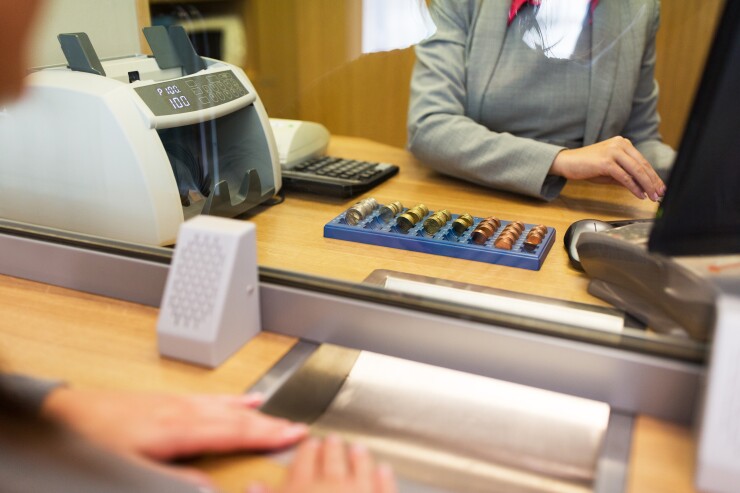The Swiss startup Liquineq is launching a distributed ledger for cashier's checks on Monday.
It’s an ambitious move. Cashier's checks tend to be high-value — they’re typically used for the down payment on a mortgage or auto loan — and they often have extra security features, such as watermarks and two bank employee signatures, to make counterfeiting more difficult. They’re trusted, secure documents. The idea of digitizing these and putting them on a blockchain-like platform is likely to be foreign to risk-averse U.S. bankers and regulators.

But two U.S. banks, as well as a few international banks, are looking at adopting the idea, according to the company.
Liquineq’s ledger is loosely based on the Ethereum blockchain, said Chief Technology Officer Dan Kikinis. It’s a private, permissioned ledger that can process 10,000 transactions per second, he said.
Customers can set up and fund an account with a bank by downloading the Liquineq mobile wallet and answering a few questions, according to the company. Debit cards can also be linked to the wallet.
In this system, sending and receiving banks would need to be Liquineq participants. At a customer’s request, banks would issue digital cashier's checks in the form of tokens that are revocable, so if a customer loses their virtual currency wallet or it’s stolen and further investigation backs up their claim, they can be made whole.
Identity proofing, Know Your customer and anti-money-laundering work will be done by partners including IdentityMind, which looks at IP address, name and address validation, and government documents to verify identities; it also offers face-match services that compare a user’s selfie against the picture in their government-issued ID.
Liquineq’s advisers include Gordon Werkema, former chief operating officer and director of payment strategy at the Federal Reserve of Chicago; Daniela Mielke, CEO of RS2 North America and former vice president at PayPal and head of global strategy at Visa; Terry Schwakopf, senior adviser in Deloitte’s Governance, Regulatory and Risk Strategies practice and former executive vice president at the San Francisco Fed; and Mark Lenhard, senior vice president of Magento and former head of global strategy at PayPal and managing director at JPMorgan Chase.





